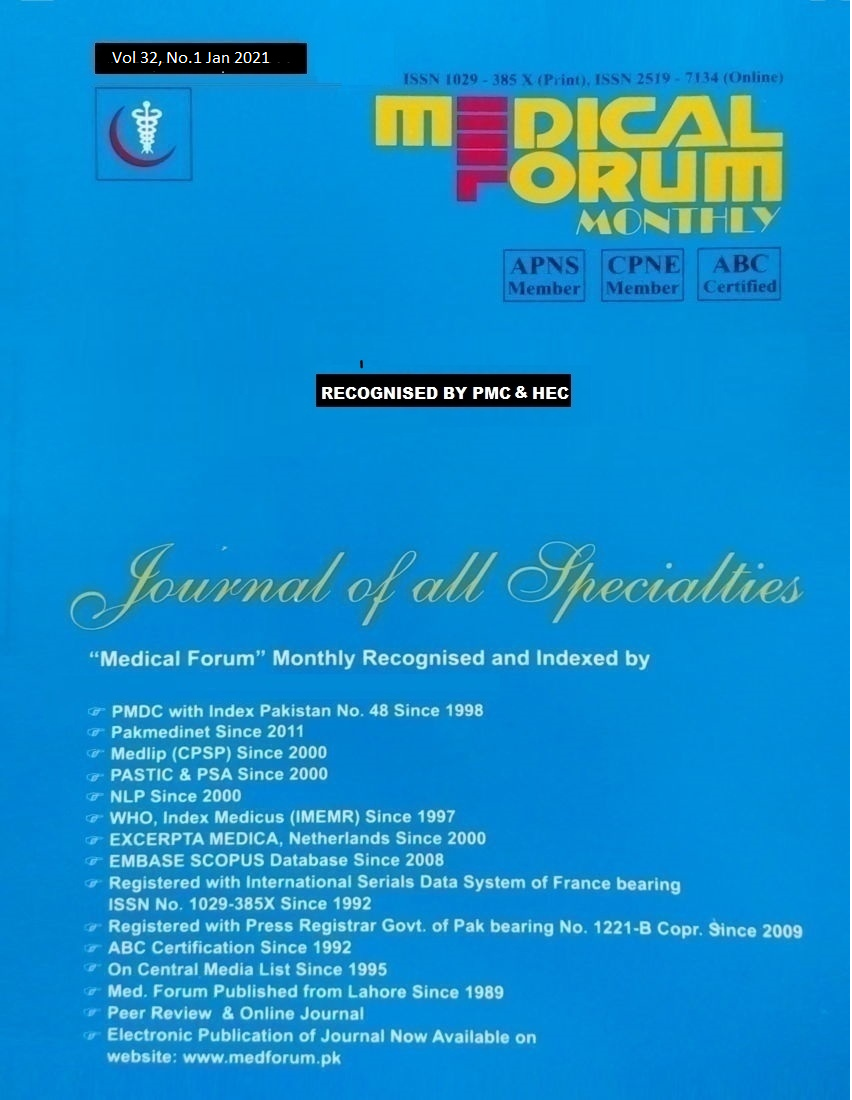
4. Dyslipidemia in Type 2 Diabetes Mellitus: A Case-Control Study
Tayyaba Batool1, Farooq Ahmad Malik3, Zia Ullah1, Saifullah3 and Ashfaq Ahmad2
ABSTRACT
Objective: To compare lipid parameters among cases having diabetes mellitus with healthy individuals.
Study Design: Case-control study
Place and Duration of Study: This study was conducted at the Department of Biochemistry, Quaid-e-Azam Medical College, Bahawalpur from August 2019 to January 2020.
Materials and Methods: A total of 40 confirmed cases of type-2 DM aged 18 to 60 years were enrolled for this study. An exact number of gender and age matched healthy controls were also included in this study. Body mass index, waist/hip ratio along with fasting plasma glucose and 2-hour postprandial glucose levels were calculated for all study participants. Serum cholesterol, serum triglyceride, serum very low density lipoprotein (VLDL), serum low density lipoprotein (LDL) and serum high density lipoprotein (HDL) levels were measured for all study participants. Results: Significantly higher mean BMI (kg/m2) was recorded among cases in comparison to controls (25.47+1.62 vs. 23.17+1.92, p<0.0001). Mean fasting plasma glucose (mg/dl) was significantly higher among cases (138.12+14.54 vs. 88.61+4.84, p<0.0001). Mean 2-hour postprandial glucose (mg/dl) was also significantly high among cases (171.14+24.6 vs. 124.50+11.8, p<0.0001). Among cases, mean serum cholesterol (mg/dl), mean serum triglyceride (mg/dl), mean serum VLDL (mg/dl) and mean serum LDL (mg/dl) were significantly raised while mean serum HDL (mg/dl) was significantly lower among cases when compared to controls (48.41+6.2 vs. 76.1+4.8, p<0.0001).
Conclusion: Significantly higher BMI were found among cases with diabetes mellitus type-2. Among patients with diabetes mellitus type-2, lipid parameters were significantly deranged. Key Words: Diabetes mellitus, lipid parameters, BMI, plasma glucose
Citation of article: Batool T, Malik FA, Zia Ullah, Saifullah, Ahmad A. Dyslipidemia in Type 2 Diabetes
Mellitus: A Case-Control Study. Med Forum 2021;32(1):17-20.
